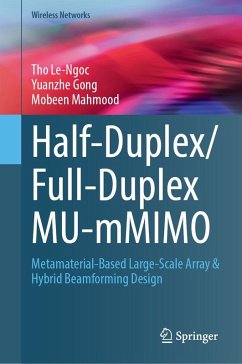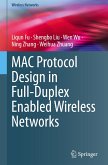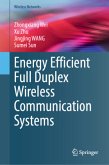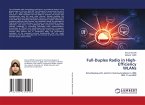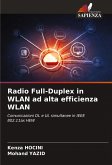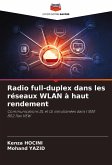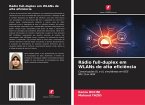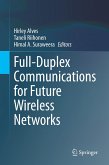This book presents an integrated study of metamaterial-based large-scale antenna arrays and beamforming optimization for both Half-Duplex (HD) and Full-Duplex (FD) massive MIMO (mMIMO) systems. As a cornerstone of future wireless communications, mMIMO provides substantial improvements in capacity and spectral efficiency, which this book illustrates. With strategically designed beamforming, these arrays can precisely direct energy toward intended users, while effectively suppressing interference. Metamaterial structures with tunable electromagnetic properties further enhance performance by enabling compact, high-isolation antenna elements and novel interference mitigation strategies. In addition, hybrid beamforming architectures are investigated to achieve an optimal balance between system performance and hardware complexity.
The first part of this book focuses on HD MU-mMIMO. Various planar and non-planar array structures are studied through full-wave simulations and prototype measurements, considering user distributions and hardware non-idealities. Novel nulling beamforming algorithms are developed, targeting both Far-Field angular separation and Near-Field spatially separated users. Deep, precisely aligned nulls are created to effectively suppress multi-user interference to noise levels, while preserving desired signal strength. The second part addresses FD mMIMO, where concurrent transmission and reception promise doubled spectral efficiency, but demand strong self-interference (SI) suppression. A multi-stage transmit receive isolation framework is introduced, integrating antenna isolation, joint beamforming, and metamaterial absorber structures. By combining beam-level isolation with cancellation techniques, experimental measurements demonstrate that residual SI can be suppressed to the noise floor, thereby ensuring reliable FD mMIMO performance.
This book is intended for researchers, engineers and advanced-level students focused onadvanced wireless systems, antenna innovations, and 5G-and-beyond technology development. It is especially valuable to R&D professionals in telecommunications companies, RF/microwave design firms, or labs working on next-generation wireless networks, antennas, and full-duplex solutions. The content provides both theoretical foundations and practical design considerations for mMIMO, full-duplex architectures, and metamaterial-based antennas. It also caters to specialists in electrical engineering, wireless communications, antenna/RF design, or signal processing who seek an in-depth exploration of cutting-edge multi-antenna technologies.
The first part of this book focuses on HD MU-mMIMO. Various planar and non-planar array structures are studied through full-wave simulations and prototype measurements, considering user distributions and hardware non-idealities. Novel nulling beamforming algorithms are developed, targeting both Far-Field angular separation and Near-Field spatially separated users. Deep, precisely aligned nulls are created to effectively suppress multi-user interference to noise levels, while preserving desired signal strength. The second part addresses FD mMIMO, where concurrent transmission and reception promise doubled spectral efficiency, but demand strong self-interference (SI) suppression. A multi-stage transmit receive isolation framework is introduced, integrating antenna isolation, joint beamforming, and metamaterial absorber structures. By combining beam-level isolation with cancellation techniques, experimental measurements demonstrate that residual SI can be suppressed to the noise floor, thereby ensuring reliable FD mMIMO performance.
This book is intended for researchers, engineers and advanced-level students focused onadvanced wireless systems, antenna innovations, and 5G-and-beyond technology development. It is especially valuable to R&D professionals in telecommunications companies, RF/microwave design firms, or labs working on next-generation wireless networks, antennas, and full-duplex solutions. The content provides both theoretical foundations and practical design considerations for mMIMO, full-duplex architectures, and metamaterial-based antennas. It also caters to specialists in electrical engineering, wireless communications, antenna/RF design, or signal processing who seek an in-depth exploration of cutting-edge multi-antenna technologies.

